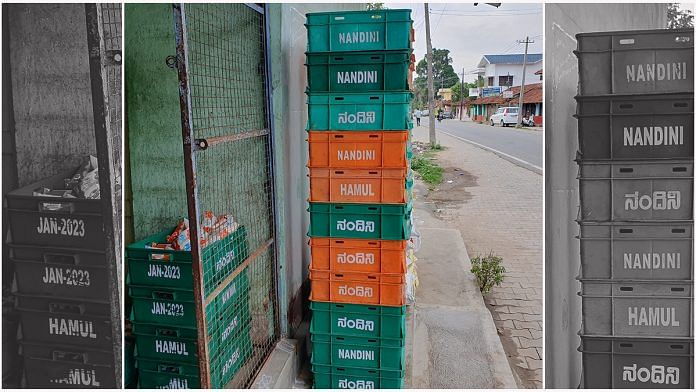Thank you dear subscribers, we are overwhelmed with your response.
Your Turn is a unique section from ThePrint featuring points of view from its subscribers. If you are a subscriber, have a point of view, please send it to us. If not, do subscribe here: https://theprint.in/subscribe/
In the late 1980s and early 1990s, I vividly remember the Indian government’s bold economic reforms, aimed at embracing foreign investment and fostering competition. However, the Indian industry was gripped with restlessness and fear, as they anticipated the challenges of facing foreign investors and the prospect of uneven competition.
In response to this predicament, a formidable force known as the ‘Bombay Club’ emerged. Comprised of influential Indian industrialists and business leaders, this group became a staunch advocate for protectionism and government intervention to safeguard the interests of domestic companies. However, little did they know that the winds of change were blowing, and India’s economic landscape was about to undergo a profound transformation.
Fast forward to 2023, and the dynamics have undergone a dramatic shift. India has not only opened its doors to foreign direct investment (FDI) but has also wholeheartedly embraced the principles of free trade. Indian companies, once apprehensive, have risen to the challenge, fearlessly locking horns with multinational giants on a level playing field.
This paradigm shift in mindset and the evolving economic landscape have effectively challenged the antiquated protectionist beliefs of the Bombay Club, transcending beyond its influence across India. However, regrettably, the same cannot be said for the current Communist-Marxist government of Kerala.
The recent “milk wars” between `Nandini` of Karnataka and `Milma` of Kerala serve as a striking reminder of the parallel between the protectionist mentality of the Bombay Club in the 1990s and the Kerala government’s resistance to competition.
The contentious remarks emanating from Chinchu Rani, the Kerala State Minister for Animal Husbandry & Dairy Development, reflect a determination to shield local milk cooperatives from external forces. This mindset harks back to an archaic era, reminiscent of India in the 1990s.
As India strides towards the future, it is imperative that Kerala’s dairy industry, shed the vestiges of protectionism and align themselves with the principles that govern success in today’s interconnected and fiercely competitive environment.
A quick look at the NDDB data reveals some key insights:
- Amul boasts the highest procurement ratio, signifying their ability to source a larger volume of milk per farmer when compared to the other two companies.
- On the other hand, Milma demonstrates the lowest procurement ratio, indicating a relatively smaller volume of milk procured per farmer.
- Nandini exhibits the highest price realization ratio, implying that they generate more revenue per liter of milk procured compared to their counterparts.
- Amul follows closely with the second-highest price realization ratio, while Milma lags behind with the lowest price realization ratio.
Considering the procurement, farmer engagement, and price realization ratios, Nandini stands out as the most prominent company among the three.
While private milk producers in Kerala are surging ahead, Kerala cooperatives have been mired in politics and shady dealings. Evidently, Kerala government cannot sustain an economy with subsidies, and it is high time that Kerala`s dairy cooperatives, operate independently.
The Marxist Kerala State government seems to treat dairy cooperatives as their private institutions because they are vote banks. Such concerns are not unfounded as there have been several instances where state government used subsidies as bait to control these huge conglomerations of milk producers, in Kerala.
Dairy farmers in Kerala are so well pampered that they get the highest per litre milk procurement price in the country. Milk production costs therefore is the highest in Kerala compared to neighboring States of Andhra Pradesh, Karnataka, and Tamil Nadu.
A private Kerala farmer with two healthy and productive jersey cows may earn Rs 400-500/day. However, he will also incur a cost of Rs 200-250/day. On the contrary, there are huge benefits of being part of a cooperative. Milk producers have a veterinarian on call; artificial insemination is done at a nominal rate or for free, depending on the society; you get cattle feed at factory prices and can avail interest-free loans from the cooperative. What more could a Kerala dairy farmer ask for? The icing on the cake is the fully Kerala State funded annual festival bonus doled out from the State exchequer that the Kerala cooperatives shares with its members. All this put together makes the per liter procurement price paid to Kerala cooperatives, the highest in India!
Survival in today’s globalized world depends on being the fittest, most efficient, and offering the best quality at the lowest cost to customers. Companies like MILMA, which fail to adapt and improve, may face the consequence of being forced out of the market. MILMA must on the contrary, embrace competition and enhance their competitiveness to thrive in the marketplace.
In this competitive new India, there are only “winners” or “losers”. Milma must therefore “shape-up” or will have to “ship-out”!
These pieces are being published as they have been received – they have not been edited/fact-checked by ThePrint.
Also read: Kerala govt to oppose Karnataka’s Nandini milk coming into state

